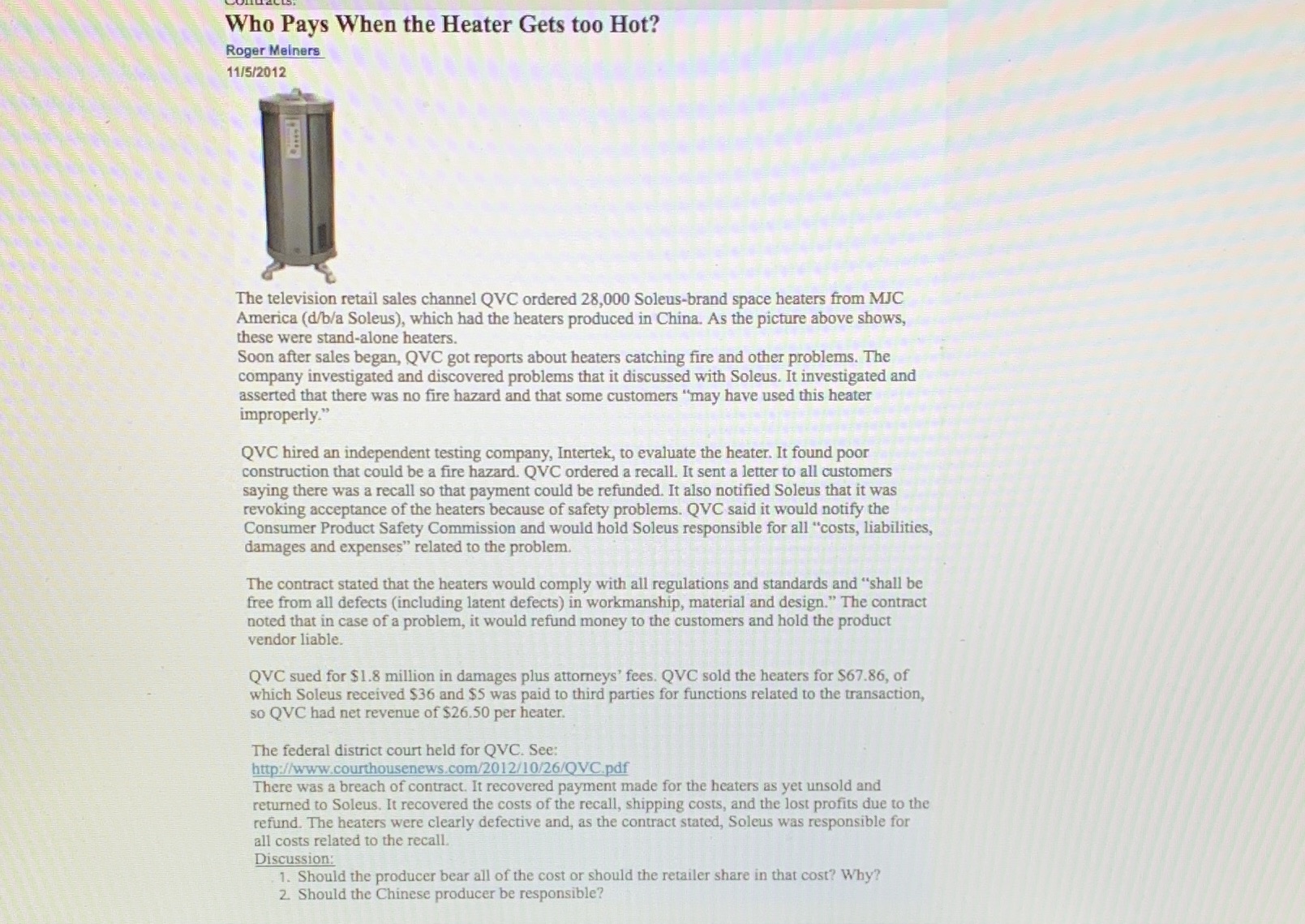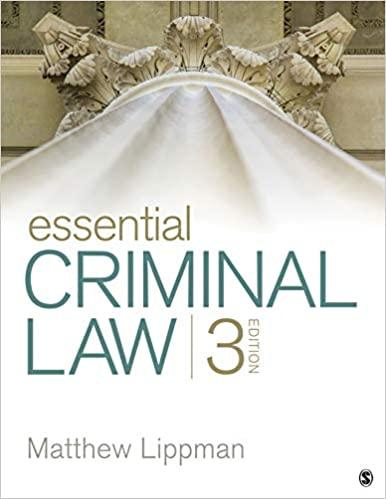This is my second time posting the question please try answering it. This is all the information. And list the sources where you got the information
Who Pays When the Heater Gets too Hot? Roger Meiners 11/5/2012 The television retail sales channel QVC ordered 28,000 Soleus-brand space heaters from MJC America (d/b/a Soleus), which had the heaters produced in China. As the picture above shows, these were stand-alone heaters. Soon after sales began, QVC got reports about heaters catching fire and other problems. The company investigated and discovered problems that it discussed with Soleus. It investigated and asserted that there was no fire hazard and that some customers "may have used this heater improperly." QVC hired an independent testing company, Intertek, to evaluate the heater. It found poor construction that could be a fire hazard. QVC ordered a recall. It sent a letter to all customers saying there was a recall so that payment could be refunded. It also notified Soleus that it was revoking acceptance of the heaters because of safety problems. QVC said it would notify the Consumer Product Safety Commission and would hold Soleus responsible for all "costs, liabilities, damages and expenses" related to the problem. The contract stated that the heaters would comply with all regulations and standards and "shall be free from all defects (including latent defects) in workmanship, material and design." The contract noted that in case of a problem, it would refund money to the customers and hold the product vendor liable. QVC sued for $1.8 million in damages plus attorneys' fees. QVC sold the heaters for $67.86, of which Soleus received $36 and $5 was paid to third parties for functions related to the transaction, so QVC had net revenue of $26.50 per heater. The federal district court held for QVC. See: http://www.courthousenews.com/2012/10/26/QVC.pdf There was a breach of contract. It recovered payment made for the heaters as yet unsold and returned to Soleus. It recovered the costs of the recall, shipping costs, and the lost profits due to the refund. The heaters were clearly defective and, as the contract stated, Soleus was responsible for all costs related to the recall. Discussion: 1. Should the producer bear all of the cost or should the retailer share in that cost? Why? 2. Should the Chinese producer be responsible







